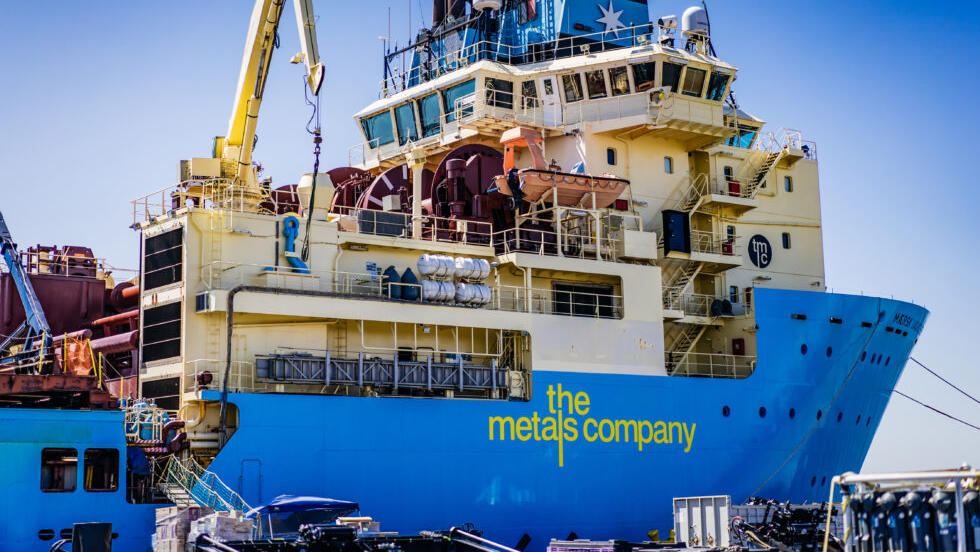The United States and Cook Islands have announced a partnership to advance scientific research and ‘responsible development’ of the billions of dollars of seabed minerals wealth within the Cook Islands' Exclusive Economic Zone, following China's own foray into the region earlier this year.
Azzet’s Mission Critical is a weekly column that lays out the ebbs and flows around the critical minerals supply chains - from pricing, production, refinement and mergers & acquisitions, to manufacturing and consumer products.
The move comes on the back of the President's April executive order that fast-tracked permits for seabed mining in both U.S. and international waters, taking direct aim at China's stranglehold on critical minerals.
Trump reckons the directive could pump US$300 billion into GDP over the next decade and create 100,000 jobs, according to his own administration's estimates.
Washington is now rushing permits under the dusty 1980 Deep Seabed Hard Minerals Resource Act, while setting up new processes for the U.S. Outer Continental Shelf.
But here's where it gets spicy: Trump wants expedited reviews of seabed mining permits "in areas beyond national jurisdiction", a move which is guaranteed to ruffle a few international feathers.
Trump's order has seriously annoyed the International Seabed Authority (ISA) and Secretary-General Leticia Carvalho fired back that "no state has the right to unilaterally exploit mineral resources outside established legal frameworks".
However, America never signed up to the UN Convention on the Law of the Sea anyway, leaving it outside the club governing 54% of the world's oceans.
The ISA hasn't done itself any favours either, dawdling for years on deep-sea mining standards without nailing down regulations due to squabbles over acceptable environmental impact levels - surprise, surprise, that it was mostly by EU member nations.
French Ambassador to the ISA, Olivier Guyonvarch, described the regulatory challenges facing the organisation as “more than an elephant. It's a blue whale in the room,” commenting on the enormous complexity of reaching an agreement among diverse stakeholders.
China to run trials
Trump's go-it-alone approach is worlds apart from China's patient multilateral game, where Beijing has quietly secured five exploration licences through the ISA.
China Minmetals got approval in May to run mining trials in the Clarion-Clipperton Zone later this year, testing their nodule collection kit.
Beijing Pioneer Hi-Tech Development plans to test collection methods this year, showing Beijing's willingness to play the long game through proper international channels.
The U.S. and Cook Islands announced seabed mineral cooperation on August 4, signalling America's broader Pacific charm offensive.
What effect that has remains to be seen, as China had already locked in cooperation deals with the Cook Islands on deep-sea mining, making Washington's announcement look like a scramble to catch up.
America spreads its wings
Almost as if they'd received a presidential pardon, Lockheed Martin dusted off its Pacific licences in July, chatting with mining companies about exploration rights it's been sitting on since the 1980s.
Impossible Metals applied for permits off American Samoa using AI-guided robot arms for what it calls "sustainable" seabed harvesting - though that's yet to be proven.
The Clarion-Clipperton Zone between Mexico and Hawaii holds nodules containing 15.5 million tonnes of nickel and 12.8 million tonnes of copper.
That's more metal than all known land-based reserves combined, according to U.S. Geological Survey number crunchers who've done the math.
Outfits such as The Metals Company (TMC) are targeting potato-shaped polymetallic nodules scattered as rocks packed with manganese, nickel, copper and cobalt.
TMC boss Gerard Barron reckons these formations just sit there "like golf balls on a driving range" when he chatted to NPR about their extraction plans.
The deep sea explorer's pre-feasibility study promises after-tax returns of 27%, though Iceberg Research noted the company has failed to deliver promised studies on releasing environmental studies for four years running.
Underwater concerns surface
Environmental groups aren't having any of it, with thirty-two countries demanding a moratorium on seabed mining.
Marine biologist Diva Amon warns mining will "destroy any biodiversity in the path of the vehicle," with studies showing deep-sea areas take decades to recover from disturbance.
Big manufacturers including BMW, Volkswagen, Volvo, Google and Samsung have already ruled out using seabed minerals, potentially kneecapping demand before supply even starts flowing.
A race against patience
TMC's US$1.59 billion market cap is built on hope rather than hard cash, with the company posting an US$81.9 million loss last year.
Korea Zinc stumped up US$85.2 million in June at US$4.34 per share, throwing the cash-burning operation a financial lifeline.
TMC reckons it'll start commercial production in Q4 2027 if permits come through, though it's also sweating a Nasdaq compliance deadline.
Caution says seabed mining is an unproven punt on unproven tech meeting fickle regulators, with environmental opposition and legal challenges stacking up like storm clouds.
Isn't everything unproven until it is, though?
TMC shares closed around US$6.11 on July 30, up 533% over the past 12 months. The S&P 500 gained roughly 5% over the same period.



